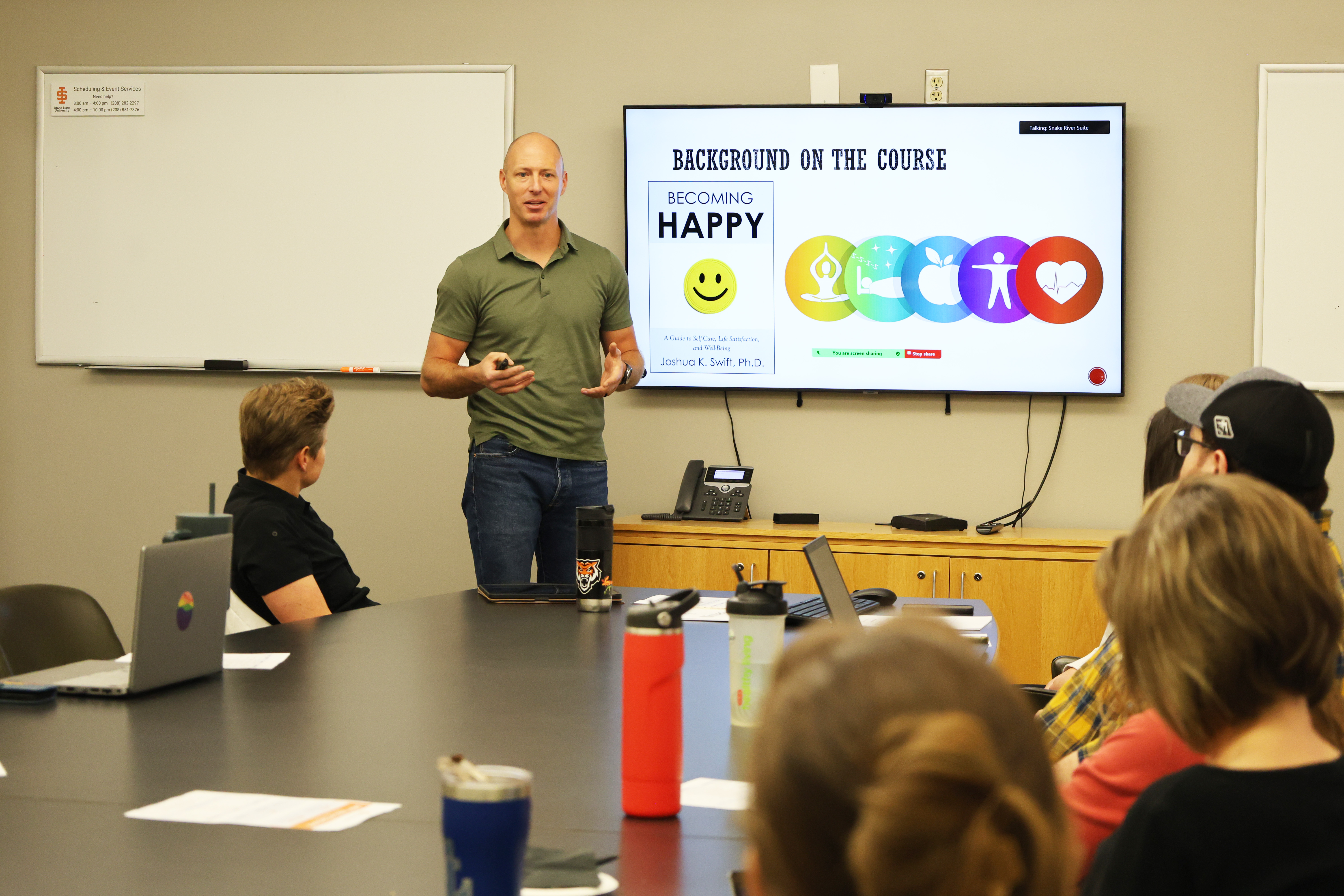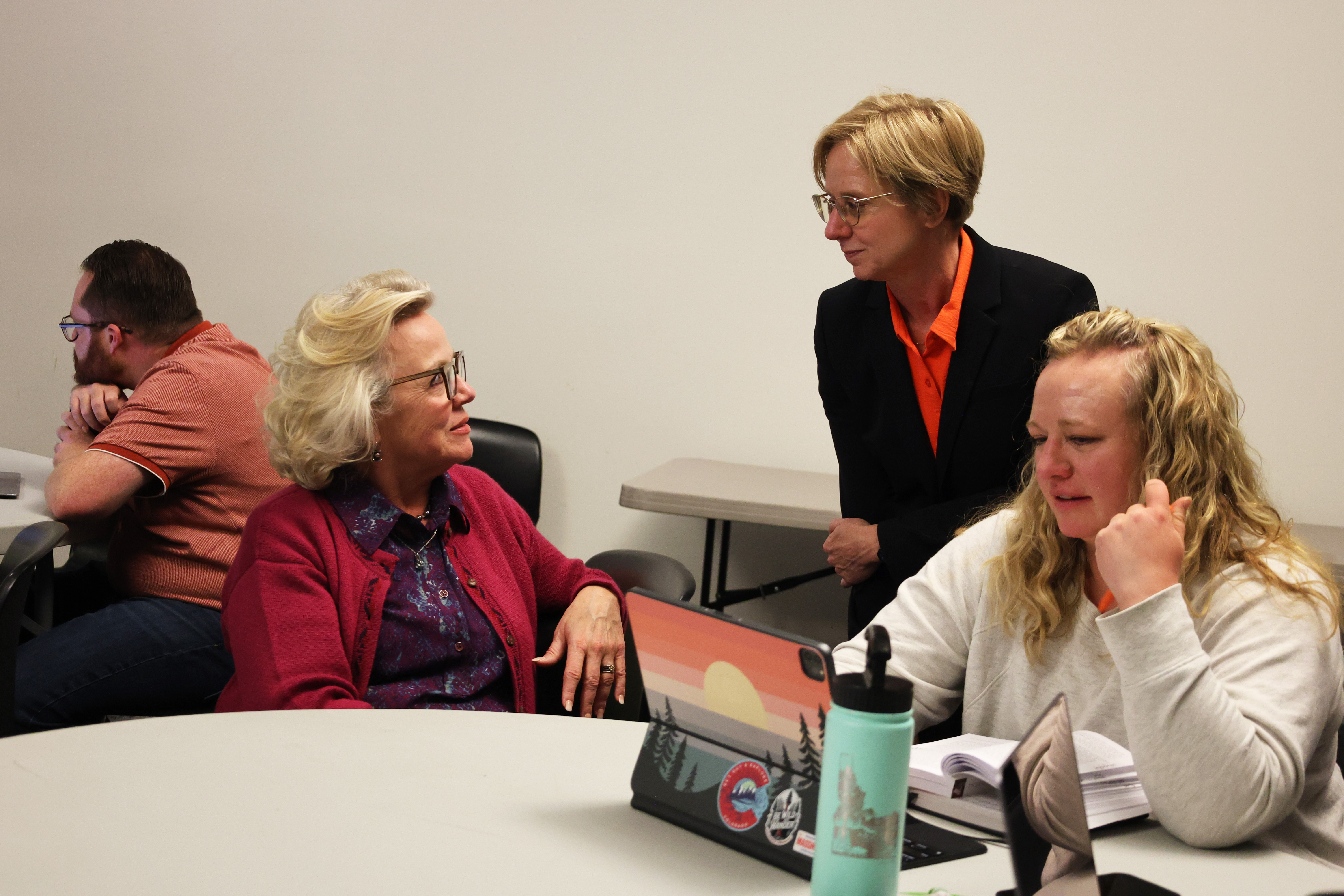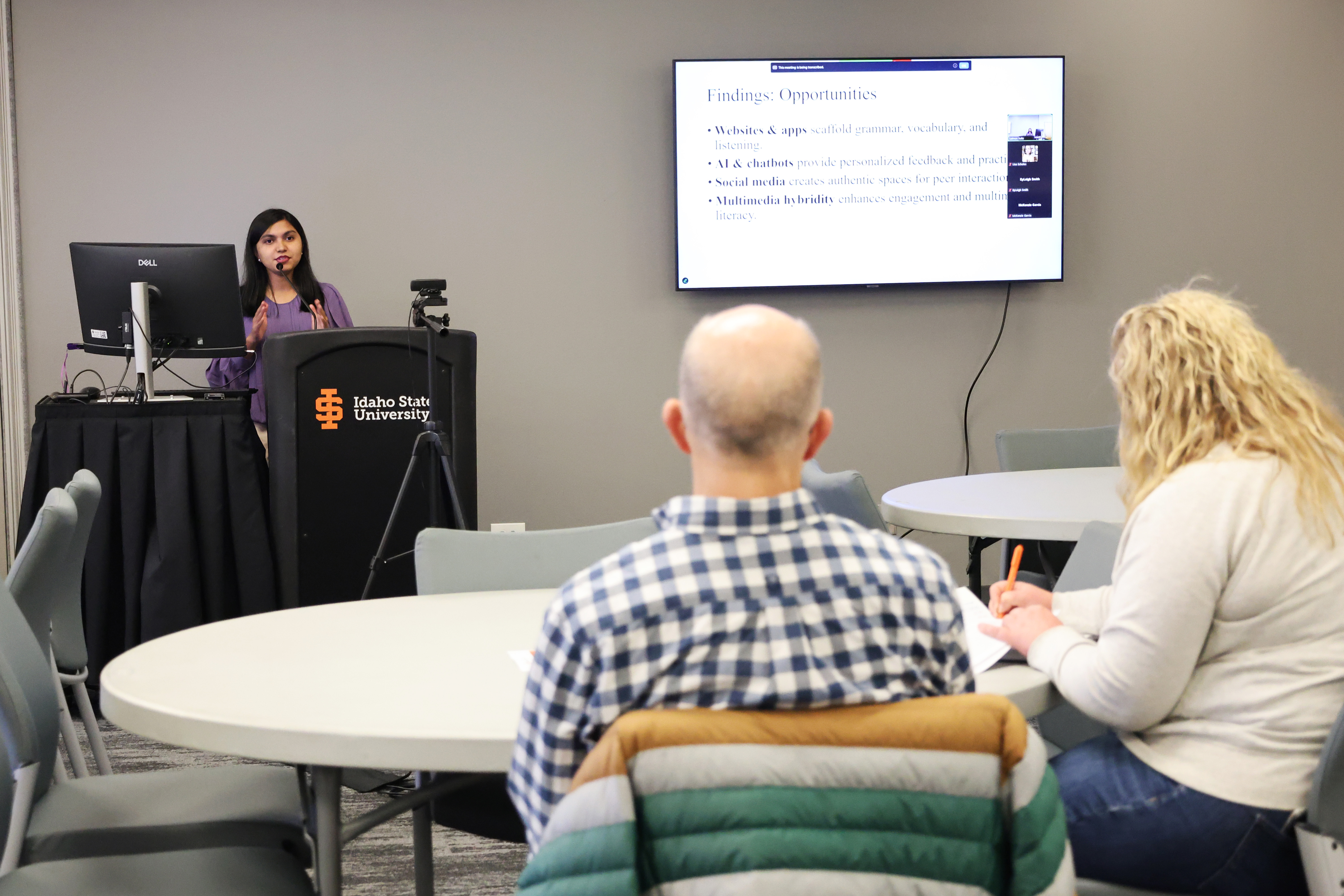.png)
Great Ideas in Teaching (GIT) Mini Conference
Hosted by the ISU College of Education, the Center for Learning and Instructional Excellence (CLIE), and the Graduate School, the Great Ideas in Teaching (GIT) Mini Conference takes the form of a mini conference with many different sessions, open to faculty, staff, and graduate students. Each session is 10 minutes with 5 minutes for questions, and provides an opportunity to share innovative teaching strategies, creative classroom ideas, or research on instructional practices in Higher Education. This event is designed to bring our teaching community together to share innovative practices and learn from one another.
2026 Conference Information
Date and time: TBD
Location: TBD
Conference theme: TBD



Past Event Highlights
.jpg)
Keynote speaker: Dr. Liza Long, academic technology program manager for the Idaho State Board of Education
Presenters
Suzanne Beasterfield, M.A. – Building Peer-to-Peer Connections in AO Courses: A Group Protocol
Moyedun Zannat Brinta – The Impact of Contemplative Pedagogies on Student Well-Being and Learning
David Coffland, Ph.D. – Multimedia Principles for Instructional Videos
Kaywin Cottle, M.Ed., and Allison L. Roxburgh, Ph.D. – Strategic LLM Selection: Choosing the Right Large Language Model for Your Use Case
Elaine Foster, Ph.D. – Beyond Recall: Using Higher-Order Questions and In-Class Quizzes to Elevate Learning and Assessment
Mackenzie Gorham – Experiential Training Through Case Studies for Technology Students
Don Hastings, Ed.D. – Active Learning Made Simple: Using Nearpod to Drive Student Participation
Rachel Hayes – Bridging the Gap: Scaffolding Writing and Research Skills
Sarah Maddux, PA-C – Write to Learn: Multiple-Choice Question Generation as an Active Learning Strategy for Physician Assistant Students
Marie Martinez, M.S., M.Ed., CCC-SLP, BCBA, LBA and Kristina Blaiser, Ph.D., CCC-SLP – Training an Interdisciplinary Cohort of Graduate Students to Utilize Best Practices When Using an Asynchronous Family Support Program
Beverly Ray, Ph.D. – Making a Case for AI Literacy
Susmita Saha – Inclusion of Postmethod Pedagogy and Digital Tools: Rethinking ESL Learning in the Bangladeshi Tertiary Context
Joshua K. Swift, Ph.D. and Eliana Claps, M.S. – Tracking Meaningful Outcomes of Teaching Effectiveness in a Self-Care and Well-Being Class
Kasey L. Wozniak, Anna S. Grinath, Ph.D., Heather J. Ray, Ph.D., and Devaleena S. Pradhan, Ph.D. –Course Design Elements of a Vertically Integrated Project (VIP) Course that Fosters Student’s Project Ownership
Xiaomeng (Mona) Xu, Ph.D. – Building Rapport in Asynchronous Online Courses – Messages and Media
Weijian Yan, Ph.D. – Innovating Instructional Design Pedagogies: Integrating Generative AI into VoiceThread Presentations
